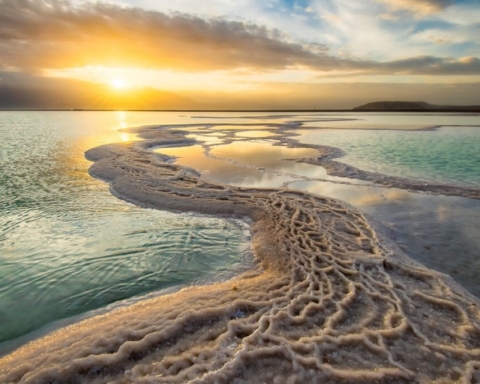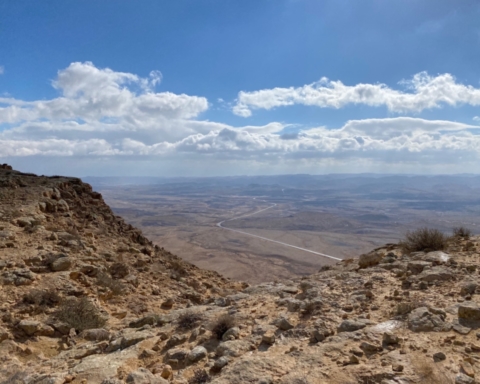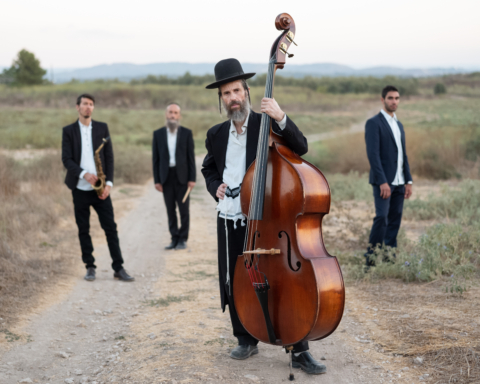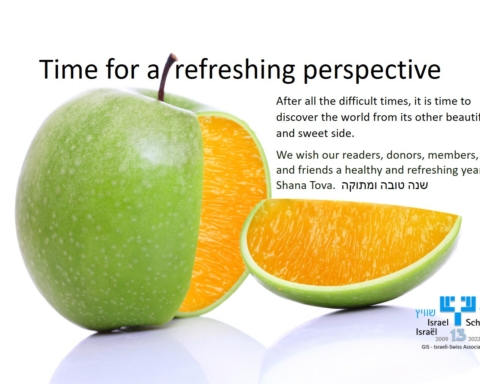Evi Anca hates plastic, yet also admits to loving it. The Israeli artist, environmental activist, and co-director of Plastic Free Israel, spends much of her time scouring beaches, construction sites, and trash piles for plastic which eventually, she turns into educational art.
Today, she uses art as a tool for activism, creating recycled masterpieces, and turning trash into treasure. Yet before her relationship with plastic took off, it all started with her love of big cats. At 22, Evi adventured to South Africa to volunteer at a wildlife conservatory, where she learned of the global industry built on legally killing endangered big cats. She was shocked that it is legal, and that “people actually pay hundreds of thousands of dollars to kill a lion locked in a cage, take a photo, and take their heads home.”
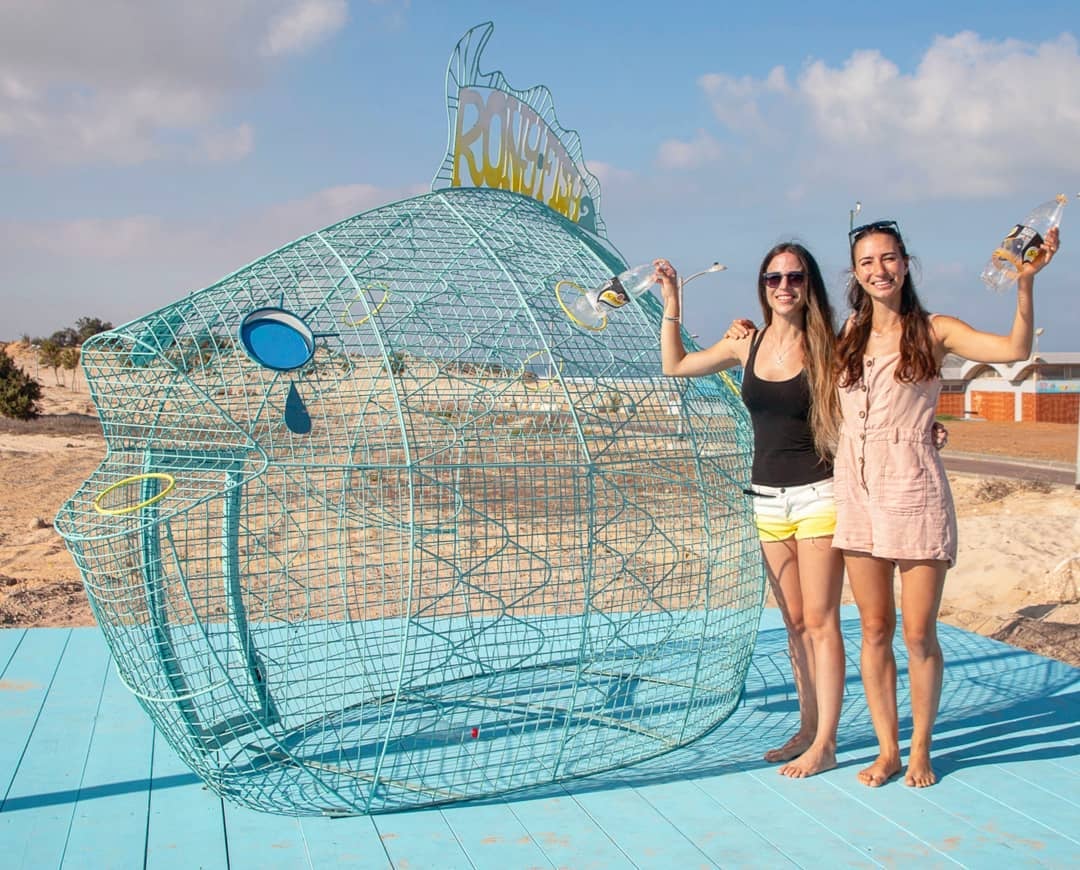
When she returned to Israel, she joined her first protest in front of the South African embassy and protested the legality of the law. That was seven years ago, and the law has still not changed.
Evi began drawing endangered animals to raise awareness and soon turned her attention to Earth’s number one enemy – plastic. Over 8 billion tons of plastic enter the ocean each year, killing ocean life, harming the environment, and creating ripples of consequences which lower the quality of human life.
While Evi believes that people must first and foremost reduce all plastic consumption, it has also fueled and inspired her work. Today it supports her mission for zero-waste vision and lifestyle, recycling trash, and buying no new materials.
Her latest project, a 4-meter-tall fish-shaped recycling cage, took about a year to make, despite many challenges and upsets along the way. Yet despite the series of no’s she received, Evi was dedicated, and today Rony Fish is installed on the Beer Sheva beach in Ashdod. She worked with a team of 3 volunteers to get the big fish ready for its first summer swim.
Of the first recycling cage shaped like a fish, Evi says “The power that art has is infinite in my eyes. Rony Fish is here to remind us all the consequences of plastic pollution and its usage on our environment and wildlife, to motivate us to use less plastic and when you do, to remember to do it with responsibility and be conscious about it!”
Other favorite projects include a clownfish made of cigarette butts, which took her over 150 hours to handmake, as well as a 2-meter-tall seahorse built in her living room, which now greets visitors at the Coral Center in Eilat.
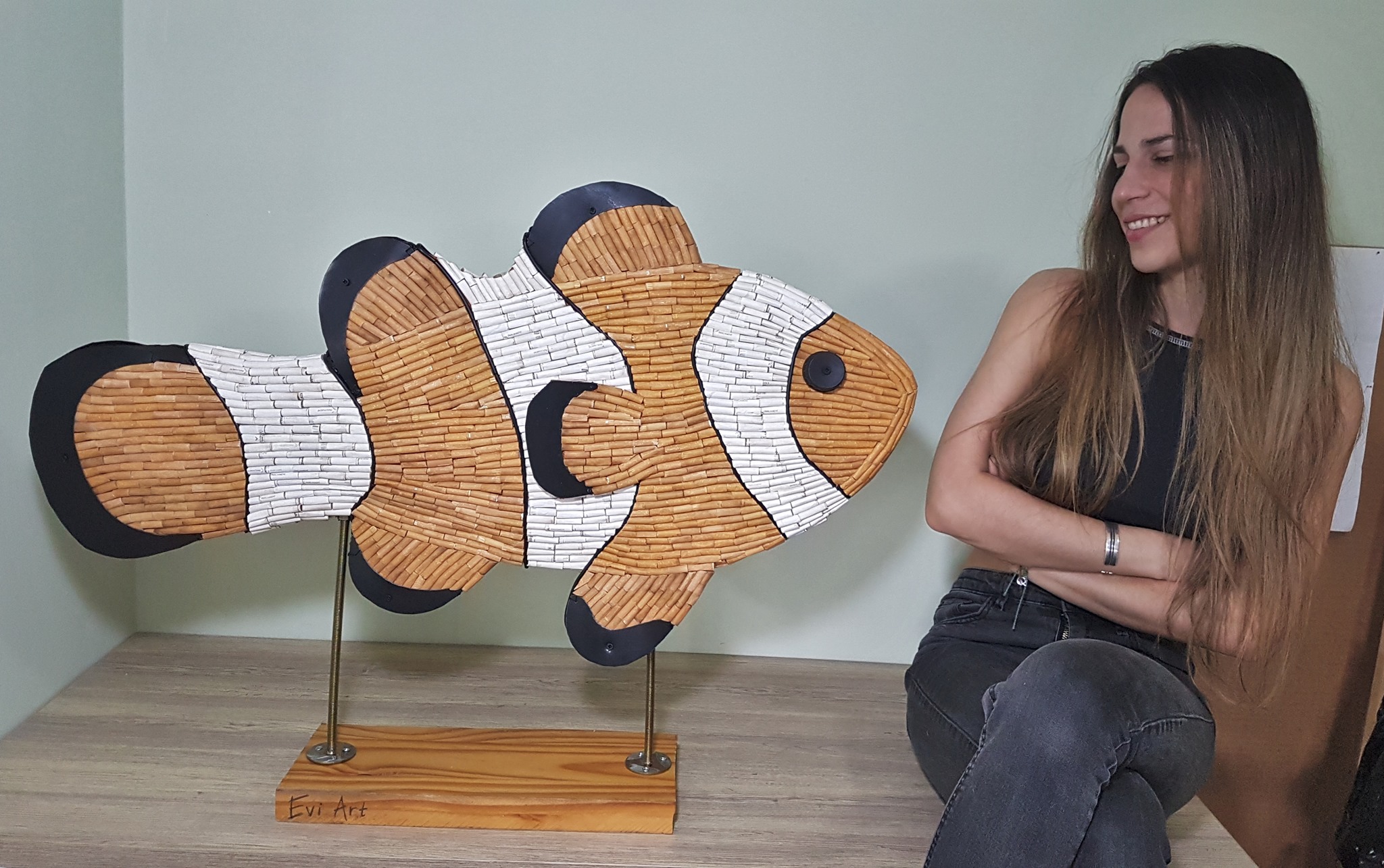
Her work meets at an intersection where the environment and human behavior are having a direct impact on one another – and she hopes her work will inspire people to think and act differently in how they treat animals and the environment.
“It’s a bit hard to hear but a lot of the problems we face with plastic are because of convenience. For convenience, people think of themselves first, and I get it. But now, we see the consequences of our behavior, and we need to look beyond ourselves. Our planet is what gives us life, and will give our children life. We have to be better. Even if we’re not 100% zero waste tomorrow, it’s okay. But as long as we are conscious about our behavior, the products we buy, and how we treat nature, the change will start by itself.”


